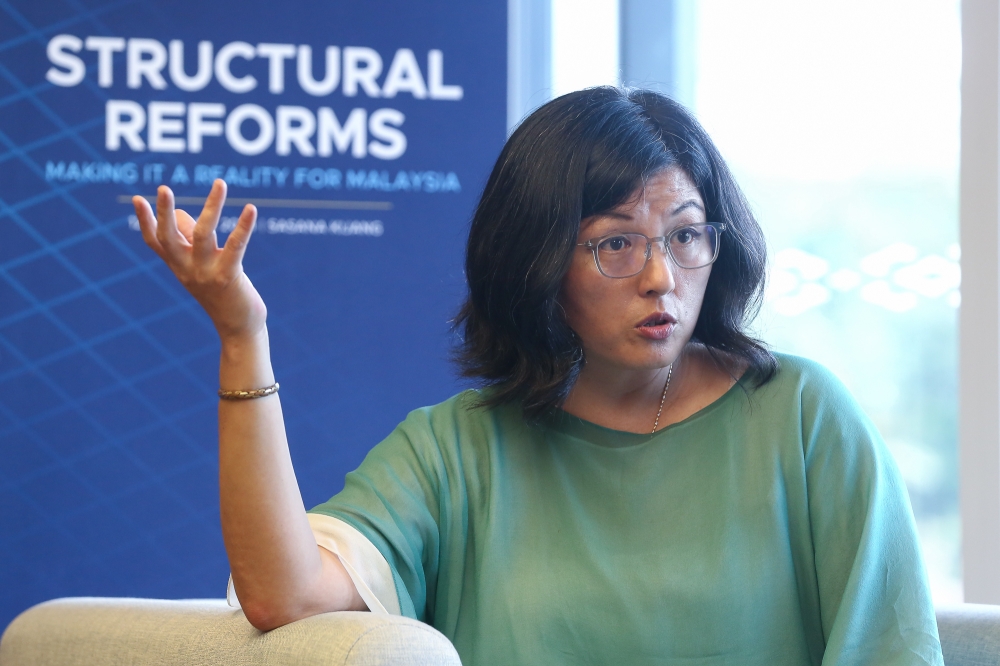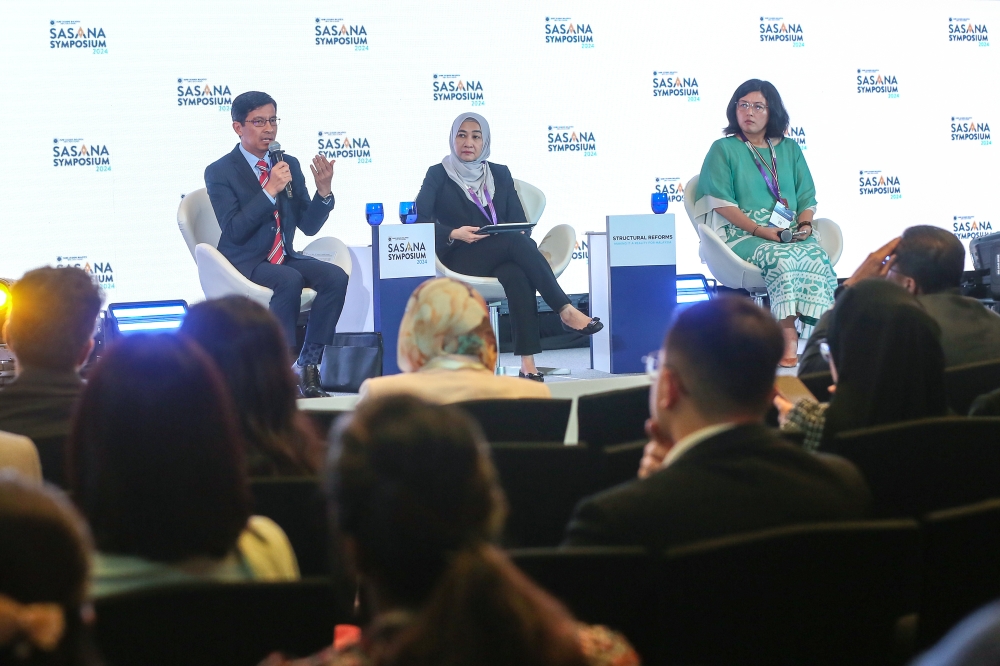KUALA LUMPUR, June 22 — Bank Negara Malaysia is implementing measures to enhance protection for less financially-savvy consumers, including convincing lenders that ethical practices are also in their best interests.
BNM director of consumer and market conduct Lim Hsin Ying told Malay Mail in an interview that these were above educating consumers on prudent borrowing and repayment practices.
In March, BNM introduced further revisions to its existing Policy Document on Fair Treatment of Financial Consumers (FTFC) — requiring financial service providers (FSP) to consider the specific circumstances of vulnerable consumers and how to address the issues they may face.
FSPs were given 12 months to incorporate the policies throughout their organisations, including safeguards for vulnerable consumers against potentially predatory practices.
Lim acknowledged the long grace period, but said it would be unreasonable to expect “overnight” change given the extent of the ask.
“But we want to create an obligation on FSPs to identify these vulnerable groups and put in place these measures that can ensure when someone is down, you do not rub salt in their wounds and make matters worse.
“And it is not an ethical thing either, it is not something you have to do just because of morals because if you have a big enough vulnerable group that goes down like this, what happens to the bank?
“Eventually the bank itself is impacted, so it is not just about ethics or social justice but good business sense for FSPs to look out for their vulnerable consumers,” she said.
What constitutes a vulnerable consumer?
According to Lim, any person might experience circumstances that make them financially vulnerable, such as facing emerging health issues, medical conditions and disabilities, loss in income and savings, limited financial literacy and education.
“I think prior to this, when people think of being vulnerable, they mean either physically or of low income, but it’s clearly more than that,” she said.
Lim said inclusivity is paramount and BNM is committed to ensuring no one is excluded from financial service no matter their circumstances.
“In order to prevent unfair treatment and protect consumers, as much as it is BNM’s job, it is our mandate and responsibility to put in place the right policies that set a minimum standard for all FSPs and regulated entities to abide by,” she said.

Addressing public view that BNM was biased towards FSPs due to its industry role, Lim said the central bank’s responsibility was beyond what is commonly perceived.
“In fact why we look after the banks is to ensure they are profitable because these are depositors’ money and if they are not profitable, the risk is we could lose all of our life savings.
“So there is a need to balance, as for my department’s role, ‘sure (we want) profits, but make sure they are not aimed at those most vulnerable within society. We want profits that are earned in a fair and just manner’.
“That is where we are coming from when we want FSPs to implement these rules, and it is very important that they do their bit and ensure vulnerable consumers are treated fairly,” she said.
Citing data on BNM’s supervisory interventions on cases of unfair conduct, Lim said the central bank successfully secured restitution amounting to RM39.6 million which benefited over half a million affected consumers of banks and insurance and takaful operators in 2022.
In 2023, this amount increased to over RM227 million, which benefited more than 2.4 million affected consumers of key financial institutions.
“This includes refunds amounting to RM149.5 million for unauthorised Perlindungan Tenang voucher redemptions by insurers and takaful operators.
“And refunds amounting to RM75.3 million to affected borrowers due to non-compliance with the Policy Document on Reference Rate Framework by banks,” she said.
Perlindungan Tenang is an initiative aimed at expanding the availability and quality of insurance and takaful solutions to meet the needs of the unserved and underserved segments.
Reference rates are publicly accessible interest rates that are used by financial institutions as a basis for pricing loans.
In addition, Lim said punitive actions were also imposed on insurance intermediaries who failed to meet minimum standards of professionalism and fair conduct regularly.
“Such actions include the issuing of stop business orders as well as rejection of applications for renewal of approvals previously granted,” she said.
Some notable examples of unfair treatment prompting BNM’s intervention in the past, Lim cited were instances where bedridden customers were told to visit their bank, low-income borrowers facing genuine hardships subjected to foreclosure proceeding, salaried professionals and university students subjected to demeaning financial service processes and predatory sales practices.
She added BNM also performs its own web scraping activities on social media to identify if any consumers were having issues with a particular FSP and whether it’s isolated or happening across the board.

Soldiering on
On cynicism over BNM’s ongoing measures to protect and empower consumers amid a growing backdrop of increasing financial crime and scams, Lim said the central bank remained steadfast in the objective.
“As I have mentioned earlier, as much as I can compel financial sector participants to do better or do more, I have no power and neither should any central banks have the power to compel consumers to behave in any which manner.
“But what do we do, do we just stand back then?
“What we can do is drive initiatives which can equip financial consumers with the right knowledge to help them make informed choices,” she said.
Lim said the ongoing all-of-nation approach from various ministries, statutory bodies and the authorities have worked together to come up with strategies to enhance financial capability of all consumers through financial education.
“So we have our independently commissioned Financial Capability and Inclusion Demand Side (FCI) triennial cross-sectional survey that assesses the level of financial capability of Malaysians based on three components — financial knowledge, behaviour and attitude — to construct our Malaysia Financial Literacy and Capability (MYFLIC) Index.
“Based on the survey conducted in the fourth quarter of 2021, the MYFLIC index improved by 1.9 points to 59.0 as compared to 57.1 in 2018, mainly due to a significant increase in the financial knowledge score sub-index.
“Nobody is resting on their laurels, we know how scammers work, you close one gate another opens,” she said.
Lim did concede that despite the ongoing efforts to educate financial consumers on the dangers of predatory practices or scams, most end up listening instead of reading.
“My team has spent a lot of time simplifying banking documents and product disclosure sheets but I do need consumers to read yet most end up listening.
“You have worked so hard to earn your money, should not you take the extra steps to ensure you understand what you are investing in? Do not be penny wise, pound foolish.
“Financial education is important. Yes, we may have certain segments which do not choose to take up this information and choose to go about their own way but we (BNM) will still look after you because that is our job,” she said.





















